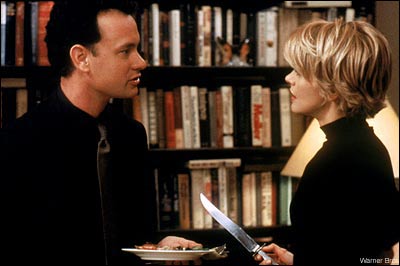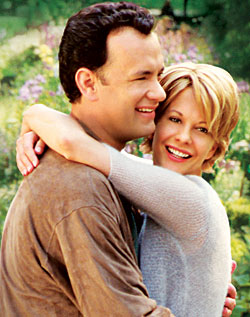From Conflict to Enduring Romance
The phrase ‘love-hate relationship’ expresses a deeper truth that in intimate relationships love and hate are not really opposites. They are both forms of intense relationship. The true opposite of love and hate is a state of neutrality where two people are oblivious or indifferent regarding each other’s existence. That is why we find numerous instances in both life and literature of intensely negative relationships gradually or suddenly evolving into their very opposite.
Why is it that sometimes we see intense dislike rapidly transformed into intense attraction or lasting affection? Physical attraction and short term infatuation are usually based on surface appearances or superficial similarities. Whereas, love and romance derive their enduring intensity from complementarity between partners at deeper levels of personalities. Often complementarity in the depth goes along with sharp differences on the surface, so the initial response may be indifference, dislike, opposition or even conflict. This is the truth behind the evolving relationship between Darcy and Elizabeth in Pride & Prejudice , which commences with dislike, develops into conflict and then gradually evolves into romantic love.
This same phenomenon is depicted in You’ve Got Mail, a popular comedy combining love on the internet with real life conflict. Like Darcy and Elizabeth, the two main characters transform their relationship from bitter antagonism to true romance. Kathleen Kelly runs The Shop Around the Corner, a quaint little children's bookstore in New York's Upper West Side, made popular by her mother for its personal touch and homey atmosphere. Living with a newspaper columnist, Frank, whom she thinks she is in love with, Kathleen believes her life to be going well and enjoys the company of her friends and employees. Her life suddenly turns upside down when a large discount bookstore run by Joe Fox opens around the corner. Joe Fox is a cut-throat businessman, with a thriving business and a satisfying personal life living with his girlfriend, Patricia, an equally arrogant, business-like book editor.

Joe and Kathy become bitter business enemies when Joe's superstore puts Kathy's little shop out of business. Meanwhile, the two of them meet in an online chatroom under the pseudonyms NY152 and Shopgirl, without knowing each other’s identity. What starts as anonymous flirting via e-mail slowly converts into a deeply meaningful relationship in which they confide in each other, share everyday life problems, and exchange their inmost thoughts and feelings.
They finally agree to meet face-to-face. Joe discovers Shopgirl's true identity just before going to meet her. Realizing she will never accept him as her on-line friend when she knows who he really is, he conceals his true identity and creates occasions to run into her apparently by accident. Each time they meet, she abuses him for his cruel, ruthless business practices. Attracted by her gentle, affectionate sweetness, he comes to truly appreciate and understand Kathy's view of things. By contact with her, the ruthless, arrogant, sarcastic businessman gradually awakens to the joy of warm human relationship, small joys and compassionate human values. In exchange Kathy learns from Joe to be more assertive, face the challenges of life boldly, take hard decisions and move beyond the sense of failure arising from the closing of her store. Increasingly attracted to the real life Joe, her mind clings to the anonymous relationship with NY152, until Joe finally discloses that the two men she loves are one and the same person.
The dramatic twists and turns of the story make good entertainment, but appear at first glance too implausible to hold lessons for real life. In fact, their relationship illustrates some profound truths of real life romance. Like Darcy and Elizabeth, Joe and Kathy start off their relationship on the wrong foot, deeply prejudiced and in open conflict with one another. Like Darcy, Joe is the first to perceive beyond their superficial differences the deeper commonalty and complementarity they share. He takes steps to overcome the animosity and resentment that separates them by employing several of the strategies mentioned on this site . (See Romance Strategies)
Like Darcy, Joe realizes that any change in the status of their relationship will have to be by his initiative. He takes responsibility for what has happened and decides that it is in his power to change the situation. He is the one who has offended her and he is the one who has to make amends. He does so not by any outward signs of flattery, apology, or wooing in the normal sense, but by trying to get to know Kathy and relate to her genuinely. First as NY152 and later as Joe, he offers her genuine positive attention and learns to listen deeply and truly to Kathy’s concerns without passing judgment or reacting to anything she says. Delighted to find someone to whom she can bare her soul and be accepted as she is, Kathy warms first to the anonymous stranger and eventually to her former enemy. Joe’s patient listening is not mere formality. He takes genuine interest in who she is and what she feels and comes to appreciate her perspective on life, which is so very different than his own. Unable to resist the gratification arising from such deep sympathy, Kathy begins to see Joe differently.
Attention, listening, understanding and taking the other person’s point of view can convert a bitter enemy into an intimate friend, but they are not enough to generate deeper feelings of love. For that, the relationship has to go beyond mere listening and become a genuine act of sharing and self-giving. Like Darcy, Joe not only listens and understands. He also honestly acknowledges and accepts the need to change himself. More importantly, he does all this without asking, demanding or expecting anything in return. He does not seek a physical relationship. He does not expect her acceptance or appreciation. He simply gives of himself, quietly and unostentatiously. When completely genuine and done with pure goodwill, this approach unfailing wins the other person. When done out of need or calculation, it evokes a response of need or taking in the other person.

Many people are willing to accept the other person as they are during the initial period of courting. But how many can truly extend freedom to a partner to be and live as themselves rather than as what we want them to be? The romantic feelings that grow between Joe and Kathy are not mere infatuation or physical attraction. Initially they gravitate toward one another without even knowing what the other person looks like. It is commonalty of mind and feeling that draws them together. The fact that they have already met and disliked each other socially reflects the truth that often we are attracted physically to those with whom no real affection is possible and superficially reject those with whom we are most deeply compatible. Contrary to popular belief, true romance is never determined by either physical appearance or social acceptability. The discovery of romantic compatibility makes the other person beautiful to our eyes, where previously we may have been indifferent. Beauty is truly in the eyes of the beholder. Rather romance is seen with the soul, not with the eyes.
Improbable as it may seem, Joe and Kathy, like Elizabeth and Darcy, discover that despite superficial differences, they have much to offer one another. Indeed, their deeper attraction arises precisely from the fact that they are so very different and therefore able to complement and complete one another. Kathy acquires something of Joe’s strength, confidence and spirit of adventure. She brings out his capacity for goodness, gentleness and self-giving. Their attraction to one another is founded upon the fact that knowing each other, they both become better, happier more fulfilled human beings.
For another in-depth example of the evolution from conflict to love, see the story of Darcy & Elizabeth.
For strategies to convert a conflict-based relationship into a harmonious, loving one, see Harmony Strategies and Romance Strategies


